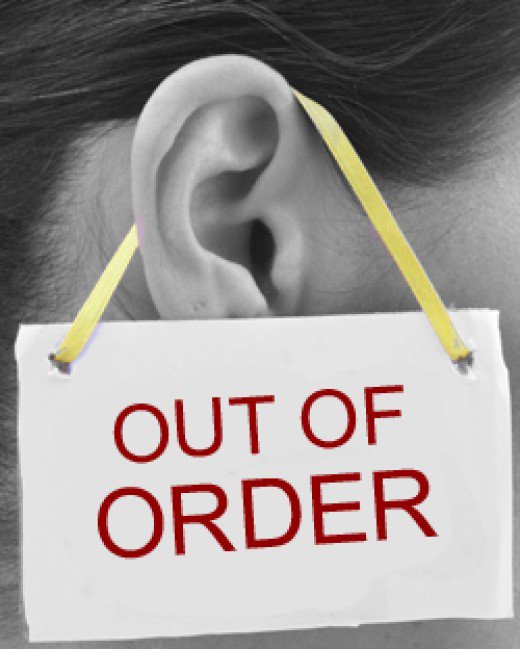Unilateral Hearing Loss – What You Need to Know

Most things in life are better together. Take for example Abbott and Costello, without whom we’d still not know who was on first. Or how Fridays are better with fish fries. Then there’s the natural pairings like salt and pepper, day and night, cookies and cream, yin and yang. Our bodies were even designed to work in pairs with right and left legs, arms, eyes and ears.
Like many people, I tend to take these natural pairings for granted until they are disrupted. When my son broke his leg this sudden loss of symmetry completely disrupted our lives. Then there was the time we went on a family vacation and one of my husband’s ears became plugged. He spent the entire vacation struggling to hear with just one ear. Luckily for all of us he is married to a particularly good audiologist who was able to remedy this as soon as we returned home. But, for many people with unilateral hearing loss it is not so easily fixed and living with this condition can be challenging if not frustrating.
Having hearing loss in only one ear seems like it would not be a big deal because after all you still have one good ear. And this is true when you are in a quiet environment listening to only one person. But as we all know our world is not silent. Once someone with unilateral hearing loss leaves their quiet haven, they struggle to follow conversations.
Here’s Why…
It comes back to how our bodies were created. We were designed with two ears but only one auditory center. Even though our ears can work independently they work best as a team. Each ear collects sound in the environment and then sends that sound to one sole auditory center in the brain, where it is analyzed and interpreted. When the auditory center receives information from one ear only, it is essentially missing 50% of the data needed to do its job. Imagine if you had to do your job with only half the equipment or information you needed. That job becomes much more challenging if not impossible.
When the auditory center does not receive equal input from both ears a few things happen. First, it struggles to localize where a sound is coming from. When you have a unilateral hearing loss the good ear will always send the signal first, even if the source of the sound is nearer the bad ear. Which essentially means this person will always assume sound is coming from the good ear side.
The Head Shadow Effect
Then there is the “head shadow effect”. The head shadow effect is what occurs when you head acts as a natural barrier, both dampening and delaying sound as it crosses from one side to the other. This works great for things like localization but is not so great when you have a unilateral hearing loss. Because of the head shadow affect, some softer speech sounds spoken on the bad ear side may not make it past your head to the good ear. If you are not able to hear these sounds clearly you are not able to follow along with a conversation.
Sound Summation
Head shadow affect aside, the soft high-frequency voiceless consonants will always pose a problem for those with unilateral hearing loss when there is background noise present. When we use two ears to hear there is a natural boost in the volume of the sound we hear. The technical term is “sound summation” but basically it means that when both ears hear a sound the volume of that sound is more than doubled, making it easier to hear.
Sudden Hearing Loss
Ease of hearing aside we were meant to hear with both of our ears and having a sudden loss of hearing in one ear is a medical emergency. A sudden hearing loss, especially those caused by a virus, may be reversible but only if treated immediately or at least within a week or two of it occurring. These losses are typically treated with steroids but waiting longer than two weeks significantly reduced the likelihood of the steroids working.
The Treatment
The solution for a unilateral hearing loss is dependent on the cause and degree of the loss in the bad ear. The recommendation could be as simple as an ear cleaning to steroid treatments. For those losses that are not reversible the options range from a hearing aid or CROS system to a bone anchored hearing aid or cochlear implant.
If you struggle with unilateral hearing loss don’t wait to treat it. Schedule an appointment for an audiologic evaluation and see what treatment options are right for you.